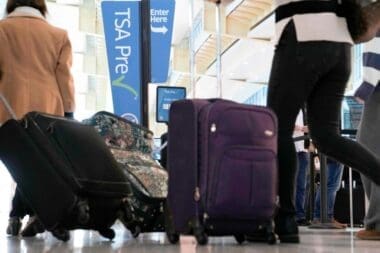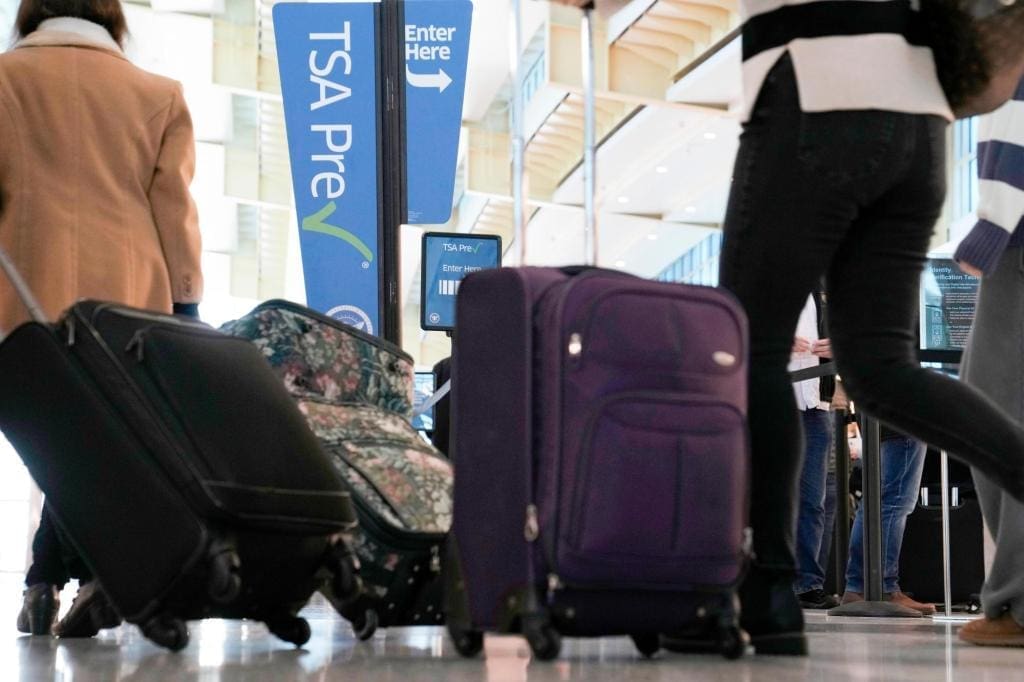As Thanksgiving approaches, the Transportation Security Administration (TSA) prepares for what is anticipated to be the busiest air travel period on record. Despite potential challenges, TSA officials express confidence in their readiness.
Airports and highways are expected to experience significant congestion during Thanksgiving week, a period likely to conclude with another record day for U.S. air travel. From transportation officials to airline executives, there is widespread assurance that they are prepared to handle the influx of travelers. However, a strike by service workers at Charlotte Douglas International Airport poses a challenge in the Carolinas.
A continuation of last year’s successful travel season, where few flights were canceled, hinges on favorable weather conditions and managing an ongoing shortage of air traffic controllers. Federal Aviation Administration (FAA) Administrator Mike Whitaker indicated that special measures might be necessary to address potential staff shortages, which have previously impacted airports in major cities like New York and in Florida. The FAA continues to face a long-standing shortage of air traffic controllers that airlines predict will persist for years.
The American Automobile Association (AAA) forecasts that nearly 80 million Americans will travel at least 50 miles from home, primarily by car, from Tuesday through the following Monday. Meanwhile, gas prices provide a bit of relief, with the national average slightly lower than last year’s figures.
The TSA expects to screen 18.3 million people at airports during this travel period, marking a 6% increase from the previous year. The busiest days are anticipated to be the Sunday following Thanksgiving, with projections surpassing 3 million people passing through checkpoints, potentially breaking past records.
TSA Administrator David Pekoske stated that staffing levels are at an all-time high, ensuring that security lines remain under 30 minutes for general passengers and under 10 minutes for those using PreCheck. Despite this, travelers are advised to arrive early and adhere to security guidelines, particularly regarding prohibited items like lithium-ion batteries and firearms, which have been frequently discovered in carry-on luggage.
The timing of Thanksgiving this year plays a crucial role in travel patterns. With Thanksgiving Day falling late in the month, travel is more spread out earlier in the week, though the return rush remains concentrated over the subsequent days. Southwest Airlines COO Andrew Watterson noted that this scheduling leads to a significant increase in travel activity immediately following the holiday.
The rise in remote work has also contributed to changes in travel behavior. Many travelers are leaving earlier and working remotely from their destinations, which extends the travel season. This trend has altered traditional peak travel days, with congestion now spreading to days earlier and later than the holiday itself.
For those traveling by car, transportation analysts recommend avoiding the busiest times on Tuesday and Wednesday afternoons, with Thanksgiving Day offering smoother travel conditions. Upon returning, the best times to hit the road are suggested to be before 1 p.m. on Sunday and before 8 a.m. or after 7 p.m. on Monday.
In summary, as Thanksgiving approaches, the TSA remains committed to maintaining smooth and efficient travel experiences, despite the anticipated record numbers. Travelers are encouraged to plan ahead, stay informed, and adhere to security guidelines to ensure a safe and efficient journey.
Source: Sun-sentinel











